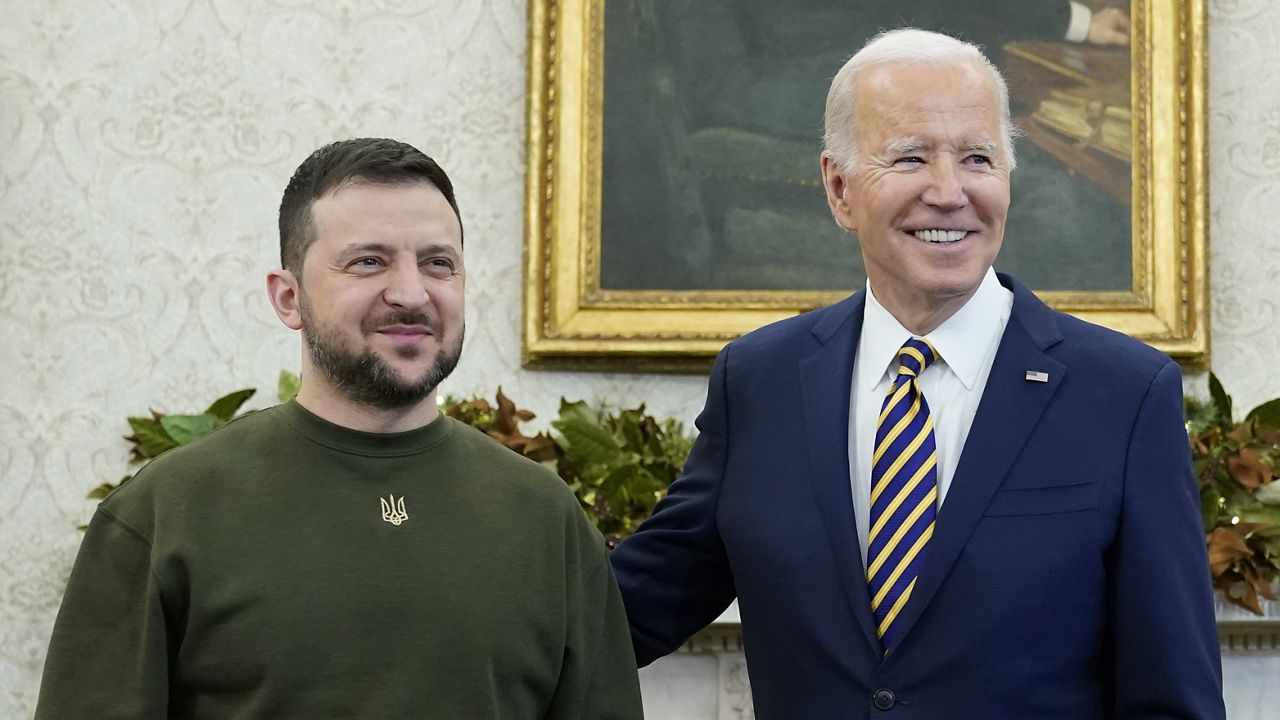The Biden administration on Thursday announced it is asking Congress for about $40 billion in funding for disaster recovery, border enforcement and aid to Ukraine as Russia’s invasion stretches into its second year.
President Joe Biden wants about $24 billion of the funds to go toward Ukraine and other related international needs as the war-torn country’s counteroffensive treks on.
The request is despite significant pushback from some in the GOP about the United States’ continued military and monetary support for the country. Polls also show many Americans have also grown weary of the continued aid.
Shalanda Young, director of the Office of Management and Budget, asked for the funding in a letter to House Speaker Kevin McCarthy, R-Calif., and other lawmakers on both sides of the aisle and in both chambers leading the budget appropriations process. Young requested the funding for the first quarter of fiscal year 2024.
"I urge the Congress to take swift action to provide the additional funding requested to follow-through on our commitment to the Ukrainian peoples’ defense of their homeland and to democracy around the world; to address the shortfall for disaster response and adequately support our wildland firefighters; and to combat fentanyl smuggling and continue our progress in responding to the humanitarian and border security situation at the United States Southwest border," Young wrote.
Domestically, it includes $12 billion for the disaster relief fund to help communities recover from catastrophic events; $4 billion for border management, including hiring immigration judge teams and tackling fentanyl; and $60 million for wildfire firefighting pay reform, seeking to prevent firefighters from facing a pay cliff.
Of the $24 billion for Ukraine, just over $13 billion is requested for military aid and more than $7 billion is allotted for humanitarian and economic assistance.
As part of the $24 billion, the administration also wants Congress to approve more than $3 billion for development and infrastructure in countries “hit hard by the spillovers of Russia’s war” – a move aimed at countering China’s influence in developing countries.
Senate Majority Leader Chuck Schumer, D-N.Y., said the administration's request "shows America’s continued commitment to helping Americans here at home and our friends abroad; and should send a clear signal to Vladimir Putin, the Chinese government, and others of America’s resolve when it comes to defending democracy around the world."
"There is strong bipartisan support in the Senate for doing more to help our fellow citizens impacted by natural disasters, fight the scourge of fentanyl, and support our partners in Ukraine," Schumer said in a statement, later adding: "We hope to join with our Republican colleagues this fall to avert an unnecessary government shutdown and fund this critical emergency supplemental request."
The last time Biden made a request for emergency aid to Ukraine, Congress approved roughly $45 billion, more than the president asked for. That round of aid was approved while Democrats still controlled both chambers of Congress.
Since then, Republicans have taken control of the House – and a number of GOP members in the lower chamber have strongly pushed back on more U.S. funds going toward the country.
In July, 70 Republicans in the House voted in favor of an amendment to the annual defense policy bill that would have stopped all U.S. aid to Ukraine if passed. McCarthy in June told Punchbowl News that a supplemental spending package with assistance to Ukraine is “not going anywhere.”
As a supplemental request, the package the White House is sending to Congress falls outside the budget caps both parties agreed to as part of the debt ceiling negotiations earlier this year.
McCarthy and House Appropriations Chair Kay Granger, R-Texas, said the House GOP is marking up the budget bills at levels lower than what Biden and McCarthy agreed to in the debt deal – setting up another likely showdown over government spending this fall.
The Associated Press contributed to this report.



